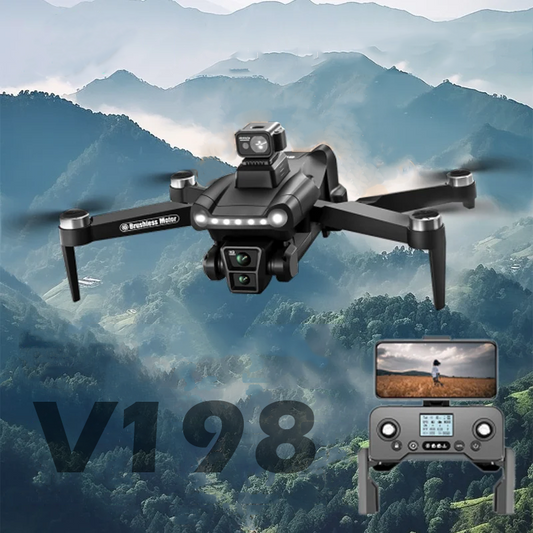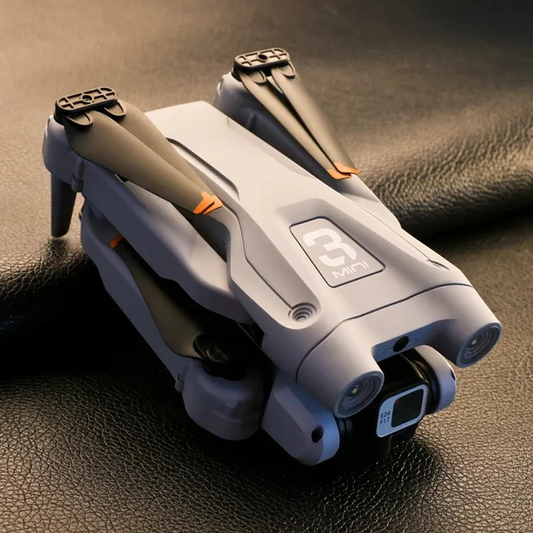The Future of Drones in Logistics and Supply Chain

In recent years, the logistics and supply chain industry has witnessed a remarkable transformation, driven by technological advancements that are reshaping traditional practices. One such innovation that has garnered significant attention is the integration of drones into logistics operations. As we look ahead, the future of drones in logistics and supply chain management appears promising, offering unprecedented opportunities for efficiency, cost-effectiveness, and sustainability.
Understanding the Landscape:
Before delving into the future prospects of drones in logistics and supply chain management, it's essential to grasp the current landscape. Traditionally, logistics operations have relied heavily on manual processes, involving trucks, trains, and ships for transportation. While these methods have served their purpose, they often encounter challenges such as congestion, delays, and high operational costs.
Enter drones – unmanned aerial vehicles (UAVs) equipped with advanced technology, including cameras, sensors, and GPS systems. Drones have emerged as a disruptive force in the logistics industry, offering capabilities that were once considered futuristic. From last-mile delivery to inventory management, drones are revolutionizing the way goods are transported and managed throughout the supply chain.
The Benefits of Drone Technology:

The adoption of drones in logistics and supply chain management brings forth a myriad of benefits:
a. Efficiency: Drones are capable of swift and agile movement, enabling faster delivery of goods compared to traditional transportation methods. With the ability to bypass traffic congestion and take direct routes, drones optimize delivery times and enhance operational efficiency.
b. Cost-effectiveness: By reducing the reliance on labor-intensive processes and minimizing fuel consumption, drones offer a cost-effective alternative for logistics operations. Companies can streamline their supply chain processes and achieve significant savings in both time and resources.
c. Precision and Accuracy: Equipped with advanced navigation systems and sensors, drones can execute delivery tasks with pinpoint accuracy. This precision minimizes the risk of errors and ensures that goods reach their destination safely and on time.
d. Flexibility: Drones are highly adaptable to diverse environments and can access remote or hard-to-reach locations that may be challenging for traditional vehicles. This flexibility expands the scope of logistics operations, allowing companies to serve a wider customer base.
e. Environmental Sustainability: As concerns about carbon emissions and environmental impact grow, drones offer a more eco-friendly mode of transportation. With lower fuel consumption and reduced vehicle emissions, drones contribute to a greener supply chain ecosystem.
Exploring Future Applications:
Looking ahead, the future of drones in logistics and supply chain management holds immense potential for innovation and growth. Here are some emerging applications that are set to transform the industry:
1.Autonomous Delivery Networks:

Imagine a network of drones operating autonomously to deliver goods from distribution centers directly to customers' doorsteps. This concept, often referred to as "flying warehouses," has the potential to revolutionize last-mile delivery and expedite order fulfillment.
2.Inventory Management and Monitoring:

Drones equipped with advanced sensors can revolutionize inventory management by conducting real-time inventory counts and monitoring stock levels in warehouses. This proactive approach enhances inventory accuracy and minimizes stockouts, leading to improved supply chain efficiency.
3.Infrastructure Inspection and Maintenance:

Drones are well-suited for inspecting critical infrastructure such as bridges, railways, and pipelines. By conducting aerial inspections, drones can identify potential issues or maintenance needs more efficiently than manual inspections, thus reducing downtime and enhancing safety.
4.Disaster Relief and Emergency Response:

In times of natural disasters or emergencies, drones can play a crucial role in delivering essential supplies to affected areas and conducting search and rescue operations. Their ability to navigate difficult terrain and access remote locations makes them invaluable assets in disaster relief efforts.
5.Cold Chain Logistics:

Temperature-sensitive goods such as pharmaceuticals and perishable foods require precise temperature control throughout the supply chain. Drones equipped with temperature-controlled compartments can ensure the integrity of these goods during transportation, thereby enhancing the efficiency of cold chain logistics.
Overcoming Challenges and Barriers:

While the future of drones in logistics and supply chain management holds immense promise, several challenges must be addressed to realize their full potential. These include regulatory hurdles, safety concerns, airspace management, and public acceptance. Collaborative efforts between industry stakeholders, policymakers, and regulatory authorities will be crucial in navigating these challenges and establishing a conducive environment for drone integration.
In conclusion, the future of drones in logistics and supply chain management is bright, promising a paradigm shift in how goods are transported, managed, and delivered. With their ability to enhance efficiency, reduce costs, and promote sustainability, drones are poised to revolutionize the way we perceive and operate within the supply chain ecosystem. By embracing innovation and overcoming challenges, businesses can unlock the full potential of drone technology and stay ahead in an increasingly competitive marketplace.
As we look to the skies, the future of logistics and supply chain management has never been more promising – and drones are set to lead the way.
Through this article, we have explored the landscape of drone technology in logistics and supply chain management, uncovering its benefits, future applications, and the challenges that lie ahead. As businesses embrace innovation and overcome regulatory hurdles, the integration of drones into logistics operations will undoubtedly pave the way for a more efficient, cost-effective, and sustainable supply chain ecosystem.
Explore a variety of drones at our online drone store.Happy Flying!









